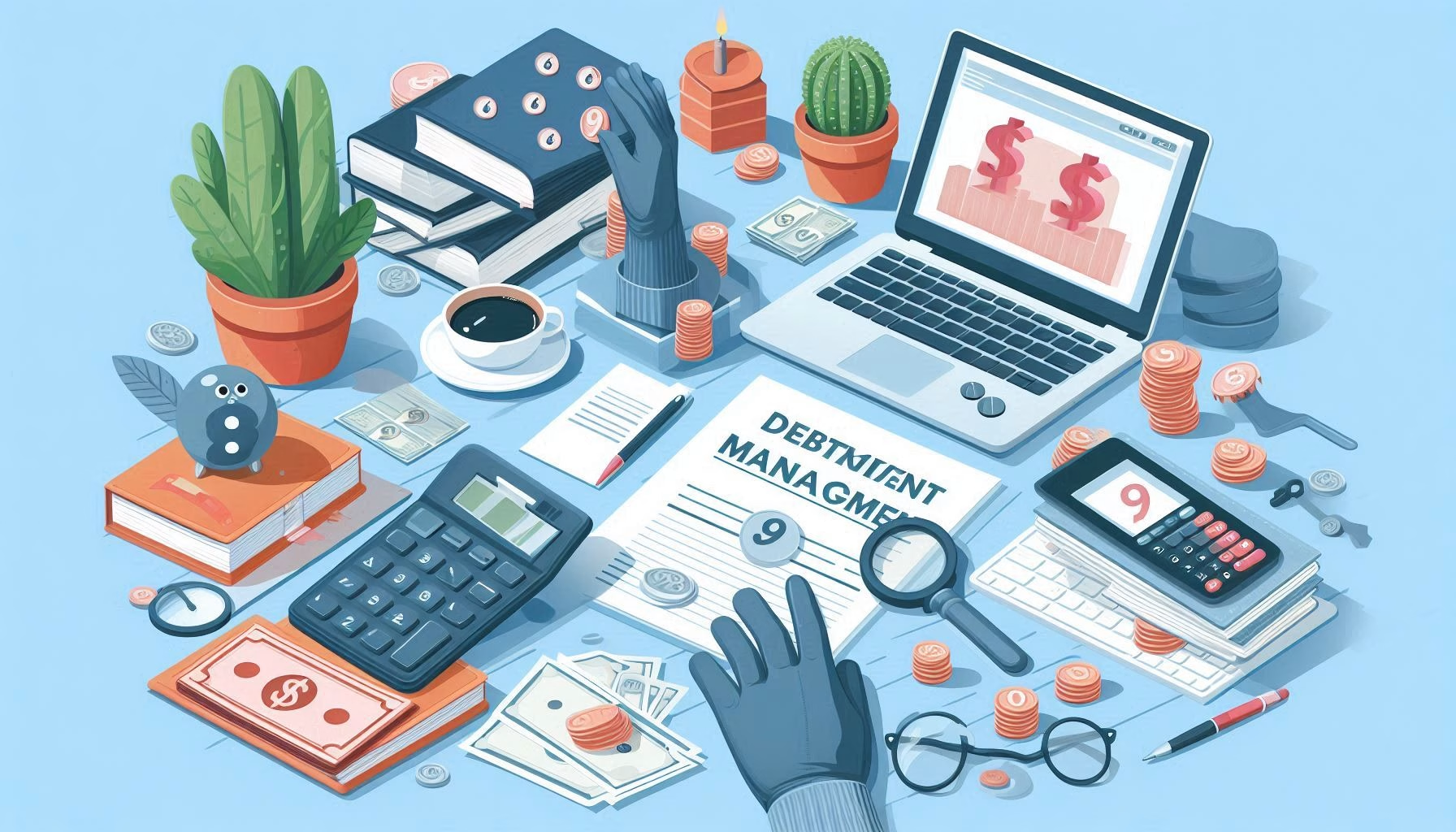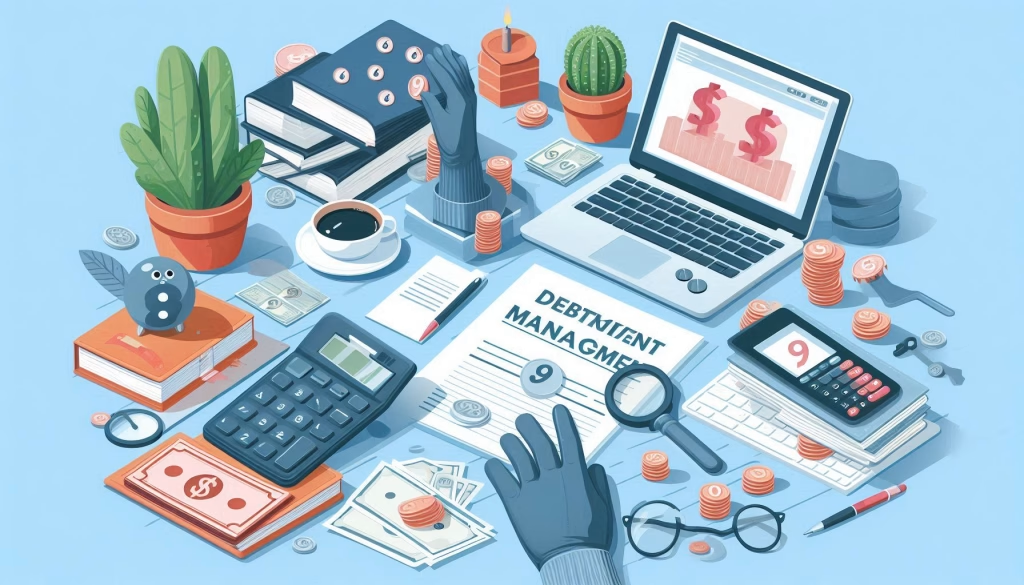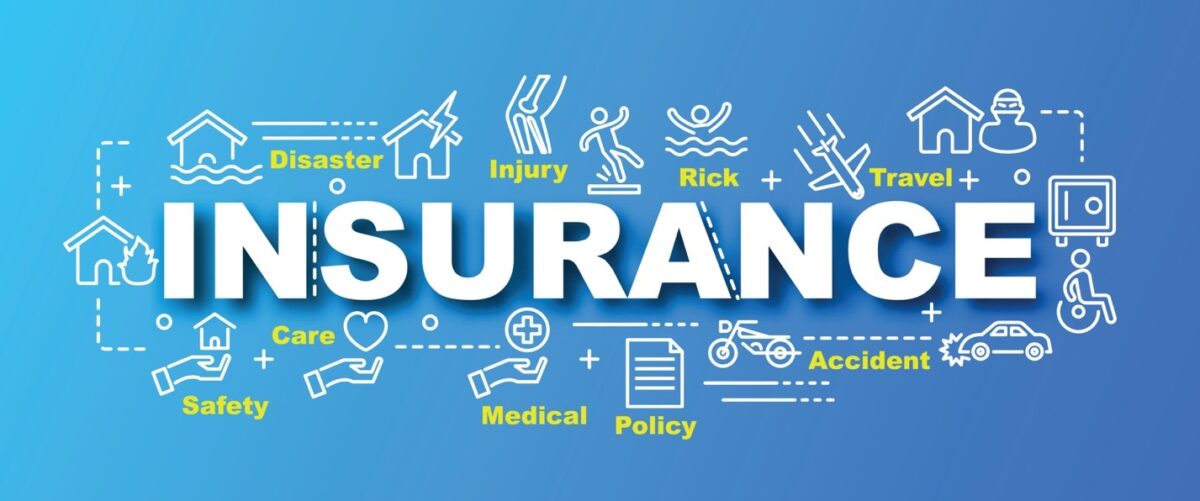Table of Contents
Overview
When applying for loans from a bank or financial institution, careful consideration should be given, including the future repayment of the debt. This will inevitably affect our overall finances, as debt becomes a temporary item in our financial budget. But what if we find ourselves unable to continue payments and settle the debt midway?
Numerous factors can lead to a person’s inability to repay debts, many of which are unforeseen or deviate from the initial plans made before incurring the debt. Such situations may arise from disruptions in employment that affect income, resulting in the inevitable default on various bills. Inability to pay debts often leads to stress, anger, fatigue, and a loss of morale. These conditions can undoubtedly hinder our ability to find solutions to the challenges we face.
Defaults can lead to a variety of severe financial issues, such as:
- Banks impose various fine fees.
- The emergence of numerous flowers has been delayed.
- Our credit score has deteriorated due to the record of debt arrears in the Debtor Information System (SID).
- Repeated bank collections can disrupt our daily activities and also increase the costs on our bills.
- The increase in debt is attributable to the accumulation of various costs.
The issues mentioned previously demand significant time and attention. They hinder our ability to focus on routine tasks, and our emotions may become erratic due to anxiety and discomfort. The impact of unpaid debts should not be underestimated as they can disrupt our entire lives. Consider the following strategies for situations when you are unable to pay your bills:

Strategies When You Can’t Make Payments No.1
InsuranceWhat.com
Don’t Ignore Debt Problems
When faced with numerous outstanding bills, it’s common to neglect them instead of taking decisive action. However, this approach is flawed; avoiding problems is not a solution. It’s crucial to confront your financial difficulties head-on and not dismiss them.
Strategies When You Can’t Make Payments No.2
InsuranceWhat.com
Do Something
When confronting the financial challenges before us, it’s crucial to take swift actions to settle our debts. We should seek viable solutions and strive to comprehend our present financial standing.
Let’s implement the strategies we’ve planned for resolving the debt issue, concentrating on the objective of effecting positive change in our financial situation.
Strategies When You Can’t Make Payments No.3
InsuranceWhat.com
Think Calmly
To explore potential solutions, it’s important to think calmly and remain relaxed. Excessive worrying will only exacerbate the situation and obscure possible solutions.
Steer clear of negative thinking and the habit of dwelling on the setbacks we encounter. Such behavior only leads to increased depression and makes it harder to rise and address the challenges before us.
Strategies When You Can’t Make Payments No.4
InsuranceWhat.com
Conduct Negotiations
It is advisable to promptly contact the bank or financing institution that provided our loan and negotiate regarding the outstanding debt arrears we have. This approach is often very effective and can offer a solution to the issues we encounter.
Communicate the issue in a calm manner, and provide a summary of the payment capabilities we possess. Request the most favorable solution they can offer, such as: waiving loan interest, extending the duration of installments, and other policies that may facilitate a resolution.
Strategies When You Can’t Make Payments No.5
InsuranceWhat.com
Evaluate Finances
Experiencing a default indicates a problem within our financial system. It’s crucial to evaluate and improve the income and expenditure entries to identify and rectify errors in our finances.
Strategies When You Can’t Make Payments No.6
InsuranceWhat.com
Make Savings
One of the simplest methods to reduce debt is to cut back on various expenses. The money saved can then be used to settle outstanding bills. It’s important to ensure that these savings do not excessively disrupt our daily activities and lifestyle. Prioritize which expenses can be reduced, and refrain from economizing on essential needs, such as basic family requirements.
Strategies When You Can’t Make Payments No.7
InsuranceWhat.com
Earn Extra Money
Earning additional income is a viable step towards resolving financial difficulties. One can supplement their fixed income by engaging in part-time work or freelancing, thereby generating an extra amount of money.
Select a job that can be done outside office hours, such as after work or on weekends when the office is closed. It’s important to choose something that won’t conflict with our primary office job, which should remain our top priority. Engage in work that aligns with our skills, ensuring comfort and proficiency.
Strategies When You Can’t Make Payments No.8
InsuranceWhat.com
Prioritize Debt Repayment
As long as we carry a certain amount of debt, we should prioritize using our income to pay it off. Avoid spending money on non-essential items and concentrate on settling your debts.
If we are unable to settle the debt in a single payment, it is advisable to pay it off incrementally. This can be achieved by prioritizing the repayment of the debt with the highest interest rate, or by paying the smallest manageable amount to build confidence in our ability to clear the debt.
Strategies When You Can’t Make Payments No.9
InsuranceWhat.com
Rearrange the Financial Budget
Having cleared several debts, it’s crucial to learn from this experience and strive to prevent similar situations in the future. It’s important to steer clear of falling back into debt and accumulating multiple installments again.
Enhancing the financial system can be achieved by creating a new budget that incorporates various financial policiesPolicy The policy is a binding agreement and is agreed upon by the insurance company and policyholder in writing. An agreement made by the policyholder with an insurance company.. Manage your expenses and income judiciously, and make it a priority to contribute to your savings immediately after receiving your monthly income.

The Conclusion
Patience is Necessary for Debt Repayment
A common reason many individuals struggle to pay off their debts is their inability to resist the temptation of acquiring everything they desire. In reality, paying off debts requires self-control to avoid being swayed by various temptations that lead to unnecessary spending. Therefore, fortifying your mental resolve is crucial if you wish to settle your debts swiftly.
Do you think you have other ideas about Debt Management: 9 Strategies When You Can’t Make Payments? You can comment and share your thoughts below, or discuss more in the InsuranceWhat Forum. Also, read more articles about GLOBAL INSURANCE or other interesting insurance topic articles only at InsuranceWhat.com.






